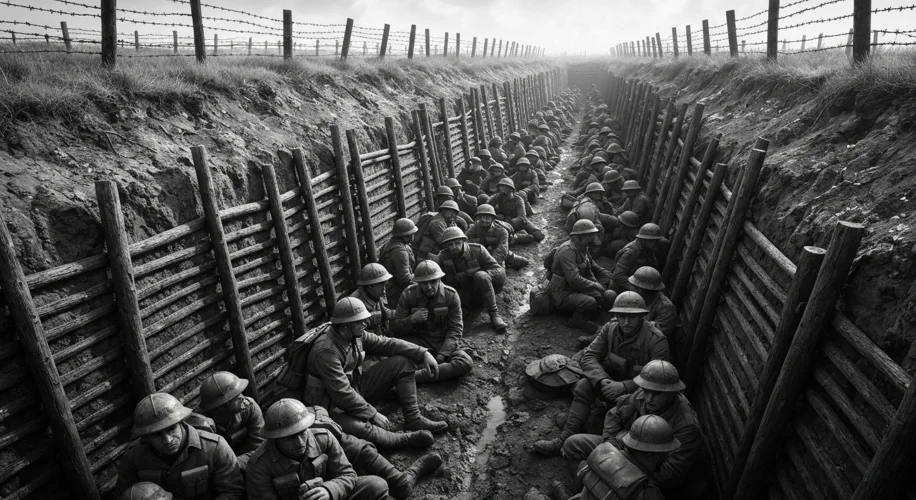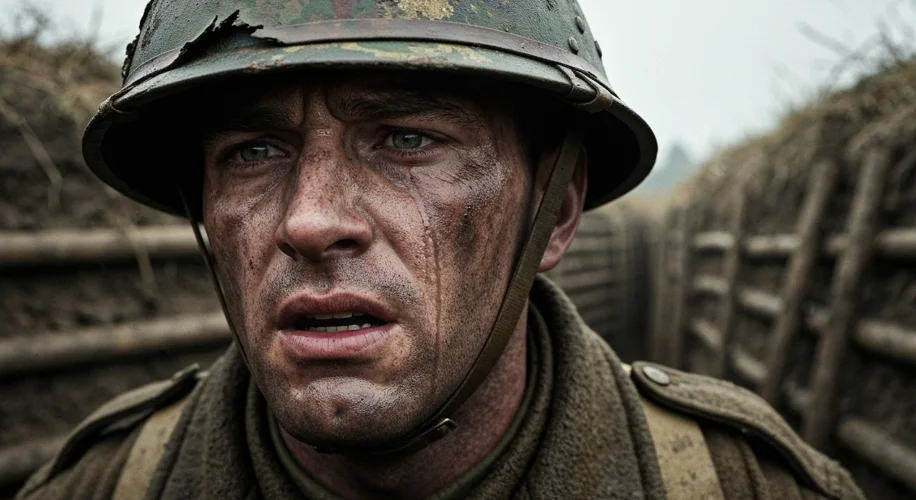The air, thick with the acrid smell of cordite and damp earth, was a constant, suffocating presence. For millions, this was the reality of the Great War, a conflict that irrevocably reshaped the 20th century and left an indelible scar on the global psyche. What began as a powder keg of simmering European rivalries erupted in the summer of 1914, engulfing nations in a conflagration of unprecedented scale and brutality.
At its heart, the war was a complex tapestry woven from threads of nationalism, imperialism, militarism, and a rigid system of alliances. Decades of escalating tensions, fueled by an arms race and a fervent belief in national superiority, meant that when Archduke Franz Ferdinand of Austria-Hungary was assassinated in Sarajevo on June 28, 1914, the spark ignited a continent-wide inferno. Austria-Hungary, backed by Germany, issued an ultimatum to Serbia, which was supported by Russia. The dominoes of the alliance system, a dangerous game of strategic chess, began to fall. Germany declared war on Russia, then France, and when Germany invaded neutral Belgium to attack France, Britain declared war on Germany.

The Western Front quickly devolved into a brutal stalemate, characterized by the horrific reality of trench warfare. Millions of men lived, fought, and died in a labyrinth of muddy ditches, separated from the enemy by a no-man’s-land bristling with barbed wire and machine-gun nests. The strategic objective was often to gain a few yards of shattered earth, a gain that came at the cost of tens of thousands of lives. Battles like Verdun and the Somme became synonymous with industrialized slaughter, where artillery barrages reduced landscapes to rubble and infantry assaults were met with a hail of bullets.
New technologies, born from the crucible of war, added to the terror. The machine gun, artillery, poison gas, tanks, and aircraft, all made their debut or were significantly advanced during the conflict, transforming the battlefield into a nightmarish landscape. The introduction of poison gas, first used by the Germans at Ypres in 1915, brought about agonizing death and disfigurement, sowing psychological terror as much as physical destruction. The drone of aircraft, once a novelty, became a harbinger of death from above.
Beyond the Western Front, the war raged on multiple fronts. In the East, the vast distances and less developed infrastructure created a different kind of brutal conflict, with massive armies clashing across sprawling plains. The Ottoman Empire joined the Central Powers, opening fronts in the Middle East, while Italy entered the war on the side of the Allies, fighting in the Alps. Naval warfare, too, played a crucial role, with Britain’s blockade of Germany and Germany’s unrestricted submarine warfare impacting global trade and contributing to the eventual entry of the United States into the war in 1917.
The human cost was staggering. By the time the armistice was signed on November 11, 1918, an estimated 20 million people had died, both soldiers and civilians, with millions more wounded and permanently disabled. Empires crumbled: the Austro-Hungarian, Ottoman, and Russian empires all collapsed. New nations emerged from the ashes, and the political map of Europe was redrawn.
The treaties that followed, particularly the Treaty of Versailles, imposed harsh terms on Germany, sowing seeds of resentment that would contribute to future conflicts. The League of Nations was formed with the idealistic aim of preventing future wars, but its inherent weaknesses ultimately proved its undoing.
The Great War was a watershed moment, a stark and brutal lesson in the destructive potential of unchecked nationalism and the devastating consequences of modern industrial warfare. It shattered the optimistic illusions of the pre-war era and ushered in a century marked by ideological conflict, global upheaval, and a profound questioning of humanity’s capacity for progress. The echoes of the trenches, the whispers of lost generations, continue to resonate, a somber reminder of the fragile peace we strive to maintain.

